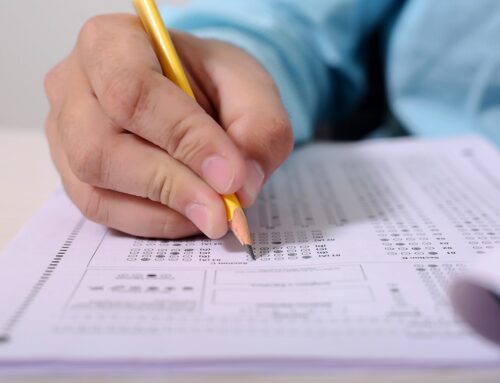This blog on co-planning learning has been written by Denise and Sophia, pupils at Parliament Hill School in London. It accompanies advice sheet S14 Empowering High Potential Learners to Take Part in Planning Provision.
What is the Project?
The Co-Planning project has been set up in schools to create more successful lessons by giving teachers access to students’ insights and opinions on learning. A pair of students will work with a teacher to give any feedback the teacher desires on starters, lessons or entire schemes of work.
Selection Process
The co-planning role was given to students early in Year 7. The students chosen to take on the job were picked from the high learning potential register and were pupils that the Head of Year believed would be well suited to the role. Students need to be reliable, trustworthy and, most importantly, eager to help improve lessons.
The students who were handpicked by the Head of Year were given a short application form to fill out, allowing them to think about the qualities needed for the role. Questions included, explaining why they would want this role and, ‘To do this job, students must behave in a responsible, professional manner. What do you think this means? How have you demonstrated this?’
Following on from the application, the students were invited to a relaxed interview to discuss the responses to the application and allow the students to ask any questions they had about the role. The application process was not to identify and remove students who weren’t fit for the role; it was to provide students with extra opportunities to practise useful skills when applications for roles become more competitive.
Training
The training process, a key part in preparing students for this role, was a 3-hour session broken up into exercises for the co-planners. It allowed them to understand the role better, reflect on what makes a good lesson and taught them how to communicate positively, providing feedback and suggestions for improvement.
At the beginning, a teacher modelled a lesson so that students could think about what made a good lesson. Then, to close the session, teachers around the school volunteered to come in and allow the students to practise co-planning. Students were paired up with each other and allocated teachers to work with to plan starters, lessons or schemes of work. This allowed students to develop their communication skills and put into practice the things that they had learned.
Pairing Students with Teachers and General Process of Meetings
The students were invited to a meeting with the coordinator of the co-planning project in the school to discuss how the training went and to address anymore questions. To finish, the students were given the opportunity to write down the names of other students they wanted to work with and the subjects the students would want to help in developing. Teachers are not obligated to participate in the project; however, all NQTs are required to meet with co-planners and, if any other teachers wish to benefit from the co-planning project, they may volunteer themselves to be paired with students.
After the students were assigned a teacher, it was up to the students to arrange meetings with the teacher, which could last between 15-30 minutes during breaks or after school and could be as often as the teachers and students felt necessary. It is recommended that meetings take place at least once a fortnight. Students did not have to help plan lessons limited to their year group. Their contributions could apply to helping improve the curriculum of any year group.
An Example of Co-Planning Work
An example of a larger project that came out of student co-planning was the introduction of a new unit for Year 8 Drama. Three Year 7 students at the time were paired with the Head of Drama and, during their sessions, they put forward the idea of having more research based tasks in the subject. Eventually, they developed a unit named ‘Inspirational Women’, where each week, classes would learn about a different inspirational woman from varying time periods, learn a new drama skill (e.g. split staging, freeze frames, using levels) and create a short piece about the woman using the skill they had learnt. For their end of topic assessment, the task was to research their own inspirational woman, and in groups decide which one to perform a drama piece about. This proved to be a successful unit and is now a permanent part of the Drama curriculum at Parliament Hill School.
Impact on Students, Teachers and Learning
This project allowed teachers to gain a unique viewpoint into what would make their lessons more engaging. Gaining students’ feedback proved valuable as they experience the lessons and are impacted most by the content and delivery. Student co-planners were given the chance to develop communication and organisation skills that will help them throughout life. Students visibly developed a new found appreciation for teachers and the immense work that they put into creating impactful lessons. The improved structure of lessons benefits all students since they get to experience better crafted, engaging lessons.






